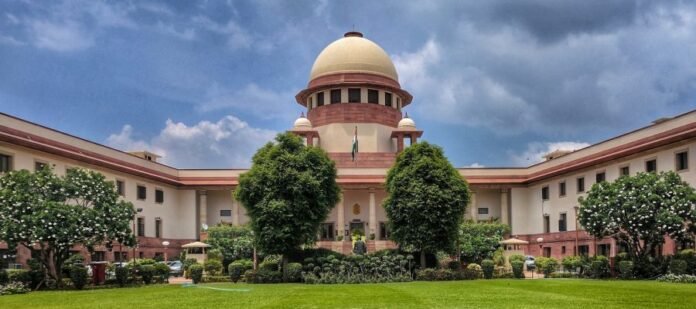Supreme Court flags onerous provisions in UP anti-conversion law, seeks scrutiny on publishing details of converted persons.
Court Flags Onerous Burden in UP Conversion Law
In a significant observation on religious freedom, the Supreme Court on Friday raised concerns over certain provisions of the Uttar Pradesh Prohibition of Unlawful Conversion of Religion Act, 2021. The bench noted that the law places an onerous burden on individuals seeking to adopt a new faith, potentially affecting the constitutional right to freedom of religion.
While quashing FIRs filed against the Vice Chancellor and other officials of the Sam Higginbottom University of Agriculture, Technology and Science (SHUATS) in Prayagraj, the Court remarked that the requirement to publish details of a person converting to another religion may not align with privacy principles and could invite societal backlash.
Citing the provisions mandating prior declarations to the district magistrate, the bench observed that such clauses could discourage voluntary conversions and create procedural hurdles that go beyond the spirit of Article 25 of the Constitution.
“The law’s intent to prevent coercion is understandable,” the Court observed, “but its implementation must not infringe on personal choice or dignity.”
Legal Experts Call for Review
Legal commentators have pointed out that the UP anti-conversion law, while aimed at preventing forced or fraudulent conversions, may require judicial calibration to balance state interest with personal liberty.
Constitutional scholars suggest that mandatory disclosures and public notices could expose individuals to harassment or discrimination, especially in interfaith contexts.
For instance, Professor Rajeev Menon, a constitutional law expert, noted that “the law’s procedural demands invert the presumption of liberty — individuals are made to justify faith, rather than freely profess it.”
Context: The SHUATS Case
The Sam Higginbottom University case involved allegations of mass religious conversion to Christianity among villagers in Prayagraj. The Supreme Court found the FIRs to be unfounded, noting insufficient evidence of coercion. The bench further emphasized that criminal law should not be used to target faith-based institutions without verified proof of wrongdoing.
The judgment may serve as a precedent for examining other similar FIRs lodged under state anti-conversion statutes.
Broader Implications
The Court’s remarks have reignited debate over anti-conversion laws enacted across several Indian states. Civil society groups argue that these laws, if left unchecked, risk curtailing fundamental freedoms and creating a chilling effect on voluntary faith expression.
As the case proceeds, observers expect the Supreme Court to clarify the constitutional boundaries of such legislation, reaffirming the delicate balance between public order and individual liberty.
🔗 Read more on related updates from The Legal Observer:
Visit our National News Section for coverage on recent Supreme Court developments, and explore Insight Features for expert legal perspectives.
🎥 For detailed legal commentary, visit our YouTube Channel.




